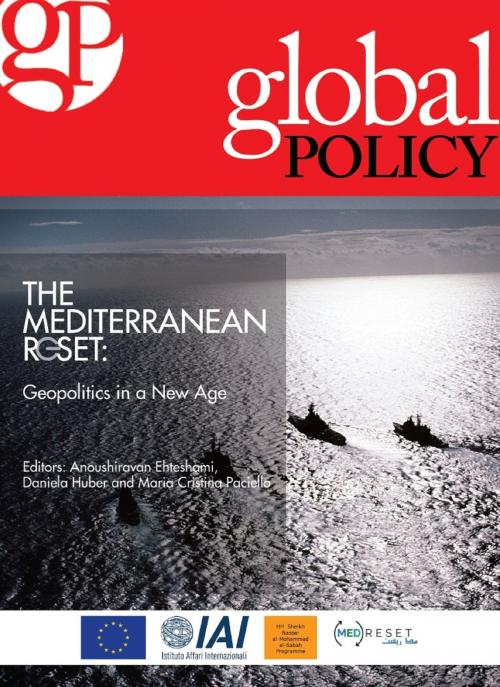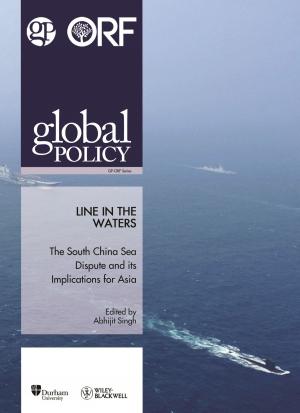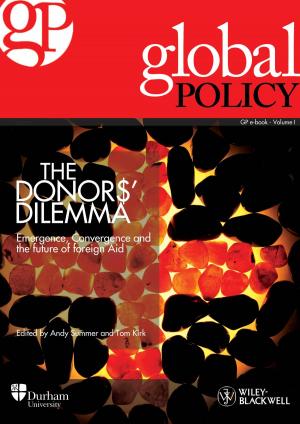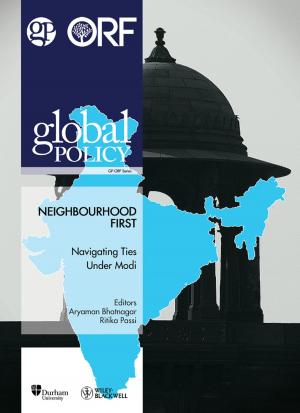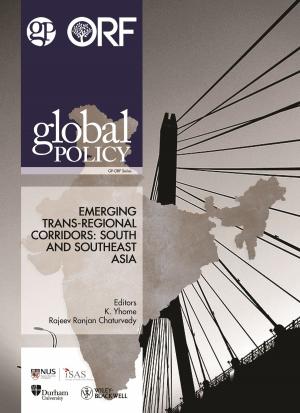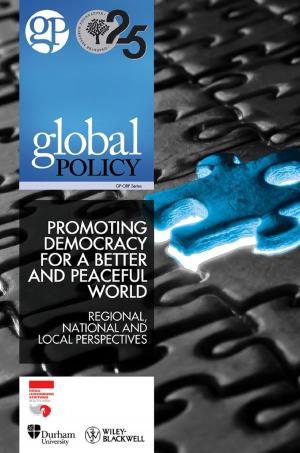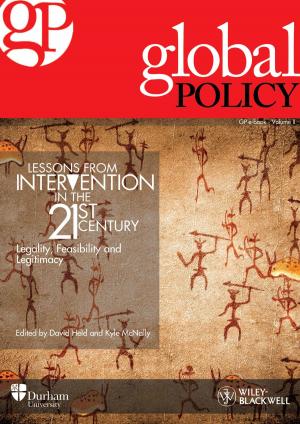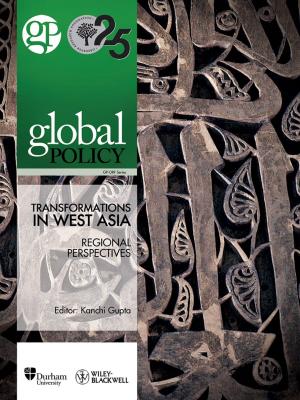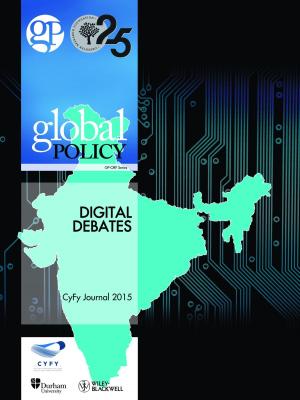The Mediterranean Reset: Geopolitics in a New Age
Nonfiction, Social & Cultural Studies, Political Science| Author: | Global Policy | ISBN: | 9781370983001 |
| Publisher: | Global Policy | Publication: | September 7, 2017 |
| Imprint: | Smashwords Edition | Language: | English |
| Author: | Global Policy |
| ISBN: | 9781370983001 |
| Publisher: | Global Policy |
| Publication: | September 7, 2017 |
| Imprint: | Smashwords Edition |
| Language: | English |
The geopolitics of the Mediterranean region has changed dramatically in the twenty-first century, partly as a result of local state dynamics and partly as a product of transformational changes at the international and broader regional levels. As opposed to the early 1990s, the EU today is no longer the dominant or key actor in the Mediterranean and it now has to balance its policies and interests in the Mediterranean against the perceptible influence of a range of major and regional powers, most importantly the United States, Russia, China, Saudi Arabia, Qatar, Iran, Turkey, and Israel. In order to remain an influential actor, the EU needs to understand how these eight powers perceive the Mediterranean, interact with and within it, and conduct themselves in pursuit of their interests. This volume is the first of its kind which aims at shedding light on these issues – on how these powers have been constructing, or at least attempted to construct, different geopolitical imaginations of what the EU has labelled the Mediterranean region, and how their identity formations has impacted their role. Applying a common framework of analysis the contributors to this volume explore these and related issues comprehensively and systematically, shedding new light on these actors’ foreign policy and geopolitical considerations, in the process discerning with which actors in the Mediterranean they most closely interact, and the methods and policy areas they have tended to focus on. In so doing, the volume will show the areas of divergence, competition and conflict, between these actors, as well as the basis on which the EU can cooperate with one or more of these influential states for mutual benefit.
Contents
Introduction - Anoushiravan Ehteshami, Daniela Huber, Maria Cristina Paciello
1 US
American Discourses and Practices in the Mediterranean Since 2001: A Comparative Analysis with the EU - Sally Khalifa Isaac and Haidi Esmat Kares
2 Russia
How Does Russia Conceive of the Mediterranean Space in Its Official Discourse and Narratives? A Critical Discourse Analysis - Nicolás de Pedro
3 China
Chinese Official Geopolitical Cartographies and Discursive Constructions of the Mediterranean: Discourse Analysis of Official Narratives and Comparison with the EU - Jordi Quero
4 Iran
Iran’s Discourses and Practices in the Mediterranean Since 2001 - Anoushiravan Ehteshami and Ariabarzan Mohammadi
5 Gulf
Saudi Arabia’s and Qatar’s Discourses and Practices in the Mediterranean - Anoushiravan Ehteshami and Ariabarzan Mohammadi
6 Turkey
Turkey, the EU and the Mediterranean: Perceptions, Policies and Prospects - Aybars Görgülü and Gülşah Dark
7 Israel
Israel’s Discourses and Practices in the Mediterranean - ASI-REM
Conclusion - Anoushiravan Ehteshami and Ariabarzan Mohammadi
The geopolitics of the Mediterranean region has changed dramatically in the twenty-first century, partly as a result of local state dynamics and partly as a product of transformational changes at the international and broader regional levels. As opposed to the early 1990s, the EU today is no longer the dominant or key actor in the Mediterranean and it now has to balance its policies and interests in the Mediterranean against the perceptible influence of a range of major and regional powers, most importantly the United States, Russia, China, Saudi Arabia, Qatar, Iran, Turkey, and Israel. In order to remain an influential actor, the EU needs to understand how these eight powers perceive the Mediterranean, interact with and within it, and conduct themselves in pursuit of their interests. This volume is the first of its kind which aims at shedding light on these issues – on how these powers have been constructing, or at least attempted to construct, different geopolitical imaginations of what the EU has labelled the Mediterranean region, and how their identity formations has impacted their role. Applying a common framework of analysis the contributors to this volume explore these and related issues comprehensively and systematically, shedding new light on these actors’ foreign policy and geopolitical considerations, in the process discerning with which actors in the Mediterranean they most closely interact, and the methods and policy areas they have tended to focus on. In so doing, the volume will show the areas of divergence, competition and conflict, between these actors, as well as the basis on which the EU can cooperate with one or more of these influential states for mutual benefit.
Contents
Introduction - Anoushiravan Ehteshami, Daniela Huber, Maria Cristina Paciello
1 US
American Discourses and Practices in the Mediterranean Since 2001: A Comparative Analysis with the EU - Sally Khalifa Isaac and Haidi Esmat Kares
2 Russia
How Does Russia Conceive of the Mediterranean Space in Its Official Discourse and Narratives? A Critical Discourse Analysis - Nicolás de Pedro
3 China
Chinese Official Geopolitical Cartographies and Discursive Constructions of the Mediterranean: Discourse Analysis of Official Narratives and Comparison with the EU - Jordi Quero
4 Iran
Iran’s Discourses and Practices in the Mediterranean Since 2001 - Anoushiravan Ehteshami and Ariabarzan Mohammadi
5 Gulf
Saudi Arabia’s and Qatar’s Discourses and Practices in the Mediterranean - Anoushiravan Ehteshami and Ariabarzan Mohammadi
6 Turkey
Turkey, the EU and the Mediterranean: Perceptions, Policies and Prospects - Aybars Görgülü and Gülşah Dark
7 Israel
Israel’s Discourses and Practices in the Mediterranean - ASI-REM
Conclusion - Anoushiravan Ehteshami and Ariabarzan Mohammadi
